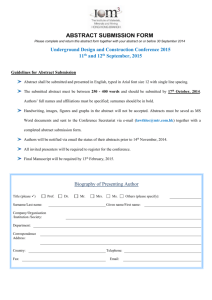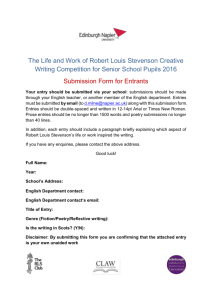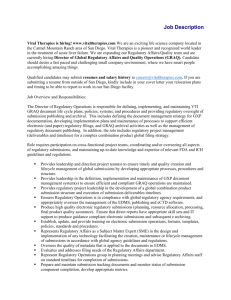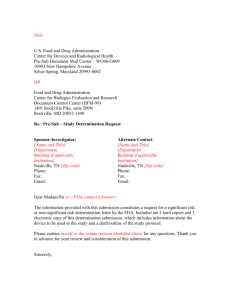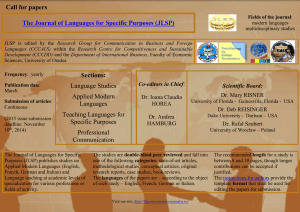SGCP ANNUAL CONFERENCE OF COACHING PSYCHOLOGY
advertisement
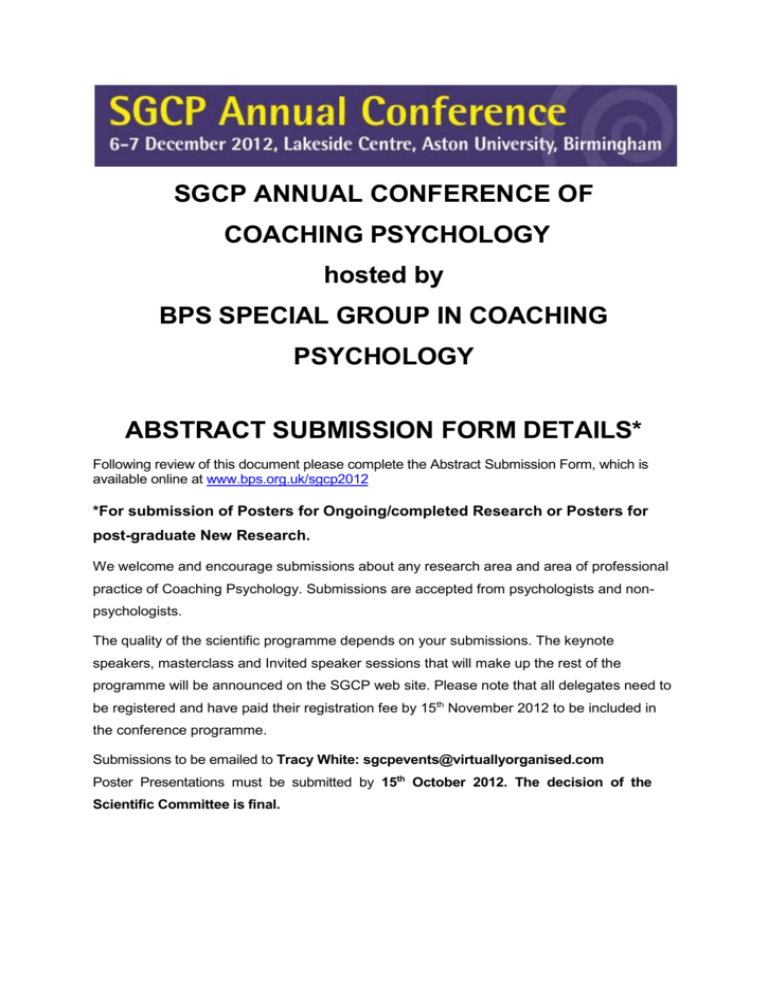
SGCP ANNUAL CONFERENCE OF COACHING PSYCHOLOGY hosted by BPS SPECIAL GROUP IN COACHING PSYCHOLOGY ABSTRACT SUBMISSION FORM DETAILS* Following review of this document please complete the Abstract Submission Form, which is available online at www.bps.org.uk/sgcp2012 *For submission of Posters for Ongoing/completed Research or Posters for post-graduate New Research. We welcome and encourage submissions about any research area and area of professional practice of Coaching Psychology. Submissions are accepted from psychologists and nonpsychologists. The quality of the scientific programme depends on your submissions. The keynote speakers, masterclass and Invited speaker sessions that will make up the rest of the programme will be announced on the SGCP web site. Please note that all delegates need to be registered and have paid their registration fee by 15th November 2012 to be included in the conference programme. Submissions to be emailed to Tracy White: sgcpevents@virtuallyorganised.com Poster Presentations must be submitted by 15th October 2012. The decision of the Scientific Committee is final. E. Poster for ongoing or Completed Research This form of presentation potentially provides a more intimate forum for informal discussion than the standard oral presentation. Further information regarding the dimensions of the poster boards and suggestions of how to display poster material will be supplied to presenters who have their posters accepted. Submissions should include: Title. Title of the submission Author(s): Name, professional designations (e.g.. Dr., C.Psychol) and affiliation (work or study place) Objectives: State the primary objective of the paper and the major hypothesis tested (if appropriate) Design: Describe the design of the study and the rationale for the procedures adopted. Methods: State the selection and number of participants, materials employed, and the procedures followed. Results: State the analytic strategies employed and the main results of the study. Numerical data may be included but should be kept to a minimum. Conclusions: State the conclusions that can be drawn from the study, including theoretical, methodological, or applied/policy implications as appropriate. All submissions must include an explicit reference to a coaching context. F. Poster for Postgraduate Studies New Research This form of presentation potentially provides a more intimate forum for informal discussion than the standard oral presentation. Further information regarding the dimensions of the poster boards and suggestions of how to display poster material will be supplied to presenters who have their posters accepted. Completion and signature by the presenter’s supervisor of section 4. Supervisor’s confirmation is required for submission of posters for post-graduate new research. Submissions should include: Title. Title of the submission Author(s): Name, professional designations (e.g.. Dr., C.Psychol) and affiliation (study place) Supervisor(s): Name professional designations (e.g. Prof, Dr., C.Psychol) of Supervisor or Head of Department Objectives: State the primary objective of the paper and any hypotheses or research questions (if appropriate), qualitative studies and review or theoretical papers also need to include clear objectives and a clear rationale for the approach taken. Design: Describe the design of the study and the rationale for the procedures adopted. Methods: State the proposed selection and number of participants, materials employed, and the procedures to be followed. Results: State the analytic strategies that will be applied and the main results anticipated in the study. Conclusions: State the conclusions that can be drawn from the anticipated results of the study, including theoretical, methodological, or applied/policy implications as appropriate. All submissions must include an explicit reference to a coaching context. You will be informed of the Scientific Board’s decision on your submission by email no later than the 5th November 2012. Please note that all presenting authors need to be registered for the conference and have paid the appropriate conference fee by 15th November 2012 in order to be included in the programme. INSTRUCTIONS FOR PREPARATION OF ABSTRACTS Complete the author and abstract details on the abstract submission form for each presentation. Abstracts must be typed, font size Arial 10 point, single line spacing and include: o Authors: bold and capitals; initials of first name(s) followed by surname(s) – underline presenting author. o Institute of affiliation: normal, bold text (e.g. AG BAKER, AN OTHER, City University). Affiliations with universities and/or organisations are acceptable. o Title: bold, normal text (e.g. Formatting of abstracts for submission to the Conference). o Content: Using the 5 subheadings, Objective, Design, Method, Result & Conclusion. The abstract length is a maximum 300 words. Submissions over this limit will be returned. On the abstract form, classify your abstract’s content and preferred mode of presentation by answering section 2 on the submission form. Oral presentations will be allocated a 20 minute slot; comprising 20 minutes talk, with discussion taking place at the end of the Parallel Session during a 10-minute discussion of the papers. Please ensure that you have thoroughly proof-read your abstract submission form, as errors will possibly delay the review process and there will be no opportunity to revise abstracts following submission. All submissions to be in English. If English is not your first language, please ask native English speaker to proofread your abstract before submitting. Poster presentations will be displayed in the exhibition area. Authors will be encouraged to stand by their posters during designated breaks in order to answer any questions from delegates. THE USE OF NON-SEXIST LANGUAGE Abstract submissions should not contain sexist language. The following are suggestions for avoiding sexist language: Delete pronouns (eg the coachee competed the task, rather than the coachee completed his/her task) Avoid using sex-specific forms generically. (eg. Use plurals such as they/their rather than he/she or his/her. Unless relevant, do not use the sex of the referent (eg. use coach, coachee, participant) Avoid sex-stereotypical assumptions about people, their abilities, attitudes and relationship. PROMOTIONAL MATERIAL If successful, you will be provided with an SGCP slide on which to copy your PowerPoint (or other media) presentation. As a BPS member network, The SGCP is focused on the development of Coaching Psychology, guided by the Society code of ethics for the appropriate application of psychology in practice. Presenters at SGCP events must abide by conference guidelines that state that, unless previously agreed in writing, we request no explicit promotion of events of other professional bodies, nor that the promotion of marketable products occurs. Speakers who do not conform to these guidelines will not be invited to speak at future SGCP events. No company logos or other promotional material should be included in either the abstract submission, or in the written or verbal presentation at the conference. See the SGCP website on www.sgcp.org.uk for opportunities for exhibition and sponsorship options available at the conference. HOW ARE ABSTRACTS ASSESSED FOR INCLUSION IN THE PROGRAMME? The SGCP European Conference Scientific Board assesses submissions on the following: Submissions are received on time and in the required format (see instructions for preparation). The language is appropriate and conforms to the BPS code of conduct, and written to a publishable standard. We strongly recommend that submissions from non-UK speakers are proof-read and checked by a native speaker before submission. The abstract content is presented in the appropriate mode (see presentation modes above). Submissions of empirical research, both qualitative and quantitative, include analyses and a summary of findings, or an outline of how this will be carried out. Note: work in progress will be considered within the programme so long as the results are available to present at the conference and it is apparent that the theory, or qualitative or quantitative method applied has been operationalised. The submission has not been published. The abstract content is explicitly linked to an aspect of coaching psychology research. The submission satisfies ethical requirements as outlined in the BPS Code of Conduct for Professional Psychologists (free copies available from the BPS Leicester office). All submissions meeting these criteria will be considered for inclusion in the scientific programme. The SGCP European Conference Scientific Board judges which submissions to include as oral or poster presentations, balancing the ideal programme with the abstracts submitted. Note: Please check the accuracy of your abstract when submitting as there is no opportunity to amend or revise abstracts after this point. All accepted abstracts will be published in the SGCP Conference programme. PRESS OFFICER If successful, your submission may be considered suitable for a press release, timed to coincide with the conference. If this is so, the SGCP Press Officer will contact you to ask whether you wish your submission to be press released, and to discuss the content of the press release with you. To write an accurate press release, and to provide more information for journalists attending the conference, you may be asked for additional information regarding your submission. EXAMPLE SUBMISSION 1. Your details: Contact name A.N.Author Address xxx Contact yyy telephone number Email zzz@xxx.co.uk 2. Indicate the type of presentation for your submission: x A. Research and/or Professional Practice Paper in Coaching Psychology paper presentation – (300 word abstract; 20 minutes for paper presentation) B. Poster for ongoing or completed research (300 word abstract) C. Poster for Post-graduate new research (300 word abstract). Please remember to complete section requiring Supervisors confirmation 3. Paper/poster Session Speakers: List the names, professional designation and email address of ALL SPEAKERS. This information will be used in the Conference Programme, failure to list will result in that speaker not being credited. Name: Professional Designation: Email Address: E.g. Dr; C.Psychol A.N. Author Dr zzz@zzz.co.uk ABSTRACT The information written here will be printed in the Conference Programme. Spelling and grammatical correctness are the responsibility of the author. Remember: Max Word Count 300 excluding Title and author info. Text to be in Arial 10pt No diagrams or drawings permitted. Your abstract will be returned if: You have not used the headings as listed below You are over the 300 word maximum limit Title of Presentation: A submission example: Does self-coaching enhance health and self-efficacy? Authors and their Affiliation: A.N. Author, AAA Note: this is a hypothetical example, as guidance for submitting authors only. The current example is an experimental study, you may need to adapt the format according to the nature of your work, for instance qualitative studies typically require some detail in the method. Objective: Little research exists on self-coaching interventions, where individuals work through specific exercises on their own, without guidance from an external coach. Yet, many self-help books, manuals and web-sites exist which promote such self-led approaches. The present study sought to fill this research gap by comparing two different self coaching interventions on three different outcomes with a control group. Design: This was a quasi-experimental field study, using a randomised controlled design. An opportunity sample of 40 volunteers, recruited from various postgraduate training courses and a network of personal contacts. Method: All participants in the two experimental groups, which were 25 males and 15 females (mean age 28, SD =2.40), received an information pack containing a general briefing, as well as a detailed description of two different self coaching interventions, one focused on positive paradigms (PP, recording and noting positive events at the end of the day), and the other one focused on goal setting (GS). Control group participants received a general briefing, and the opportunity to receive either invention pack at a later date. Baseline measures included demographics, experience of coaching, self efficacy as well as mental and physical health. Outcome measures administered after each two-week long coaching intervention were physical and mental health, self-efficacy, and satisfaction with the process. Results: By group comparisons using ANOVAS and t-test revealed that participants in the PP condition scored significantly higher on all outcome measures following self-coaching, in the GS condition there was only an increase in self-efficacy. No significant changes were recorded in the control group. Conclusion: Results are discussed in the light of positive psychology and goal setting theory, noting that goal based approaches may be more appropriate for coaching with guidance, given the importance of feedback in the process. 289 Words including headings The SGCP Annual conference of Coaching Psychology is the 4th National Conference hosted by the BPS Special Group in Coaching Psychology

